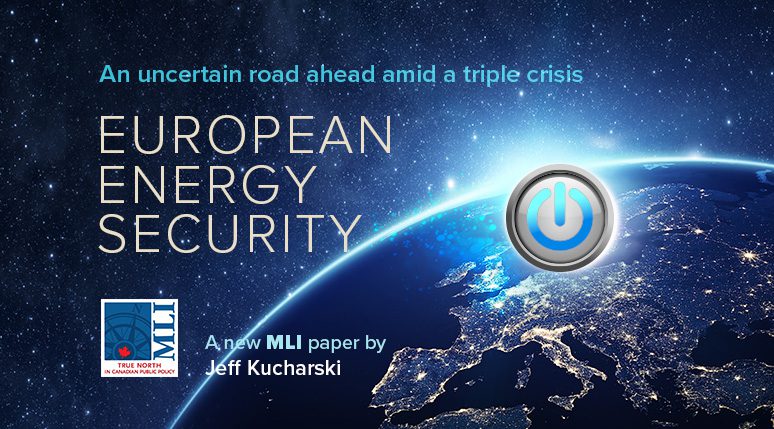By Jeff Kucharski
April 19, 2023
Executive Summary
The world is in the midst of three simultaneous crises: an energy crisis, a geopolitical crisis, and a climate crisis. Nowhere is the impact of this triple crisis being felt more acutely than in Europe.
The origin of the current energy crisis did not begin with Russia’s invasion of Ukraine; the seeds were sown in policies and trends that were in place long before 2022. The impact of the crisis is being felt particularly acutely in Europe, which is trying to cope with the energy shortage, the climate crisis, and sharply rising prices. Europe’s formerly heavy reliance on Russia for a significant proportion of its energy supplies has ended for good. As a result, Europe is radically restructuring its energy supply chains.
This paper focuses on how Europe is being affected by the energy crisis, what policies and steps the European Union (EU) is taking to deal with the situation, and what the implications are for these policies and decisions on European energy security.
The scope of the energy crisis facing Europe is unprecedented. Sanctions on Russian oil, gas, and coal have reduced supplies from Russia to near zero, with severe impacts on heating, industrial manufacturing, and electricity. Wholesale prices of electricity and gas have increased by a factor of 15 compared to early 2021, with severe impacts on households and businesses. Energy supply shortages and high prices threaten the economic sustainability of the region and a major recession in Europe in 2023 seems likely.
The EU’s dependency on energy imports, particularly oil, natural gas, and coal, is at the heart of the issue. More than half of the EU’s total energy supply comes from imported sources. In 2020, the EU was dependent on imports for about 58 percent of its energy supply while domestic energy sources met the remaining 42 percent. Primary energy production from solid fossil fuels, natural gas, crude oil, and other sources within the EU is relatively minimal. On the other hand, production of energy from nuclear and renewable sources is significant. However, the EU is almost totally reliant on imports of rare earths, materials essential to the manufacture of clean energy technologies. China currently supplies 98 percent of EU demand.
Despite its short-term success in managing the energy crisis, there are longer-term risks to Europe’s energy security arising from some of the policy responses to the crisis. Energy policies that target 70-100 percent reliance on variable renewables are at risk from grid instability, susceptibility to extreme weather events, uncertainty around clean energy technological developments, NIMBYism, regulatory hurdles, and others. The idea that European countries can eliminate nuclear power – a reliable source of emissions free electricity – is unfathomable in a situation where the continent will need a diversified portfolio of any and all emissions-free sources of energy to underpin grid stability while achieving its emissions reduction targets.
No nation can achieve a responsible energy transition unless it balances climate change goals with economic and energy security considerations and Europe is struggling to find the right balance. The realities imposed by the war in Ukraine along with high energy prices and impacts on consumers and industrial competitiveness argue for more pragmatism and less idealism in policy development. While Europe seems determined to reduce its reliance on imported fossil fuels in the name of energy security, it is still going to remain reliant on fossil fuels for a significant portion of its energy needs for many years to come.
Unfortunately, despite its ample resources, Canada’s contribution to Europe’s energy security is likely to be rhetorical rather than practical, at least in the short- to medium-term. While new export projects for oil and LNG will soon come online they will primarily supply the Indo-Pacific region. Canada’s supply chains for critical minerals, batteries, and other clean energy technologies will take much more time and are more likely to be aimed at satisfying the North American rather than the European market.
Europe and most of the rest of the world are going to have a multi-decade period over which the traditional hydrocarbon-based system exists alongside a growing clean energy system. Managing this interplay effectively is going to be one of one of the greatest challenges we face in the 21st century.






